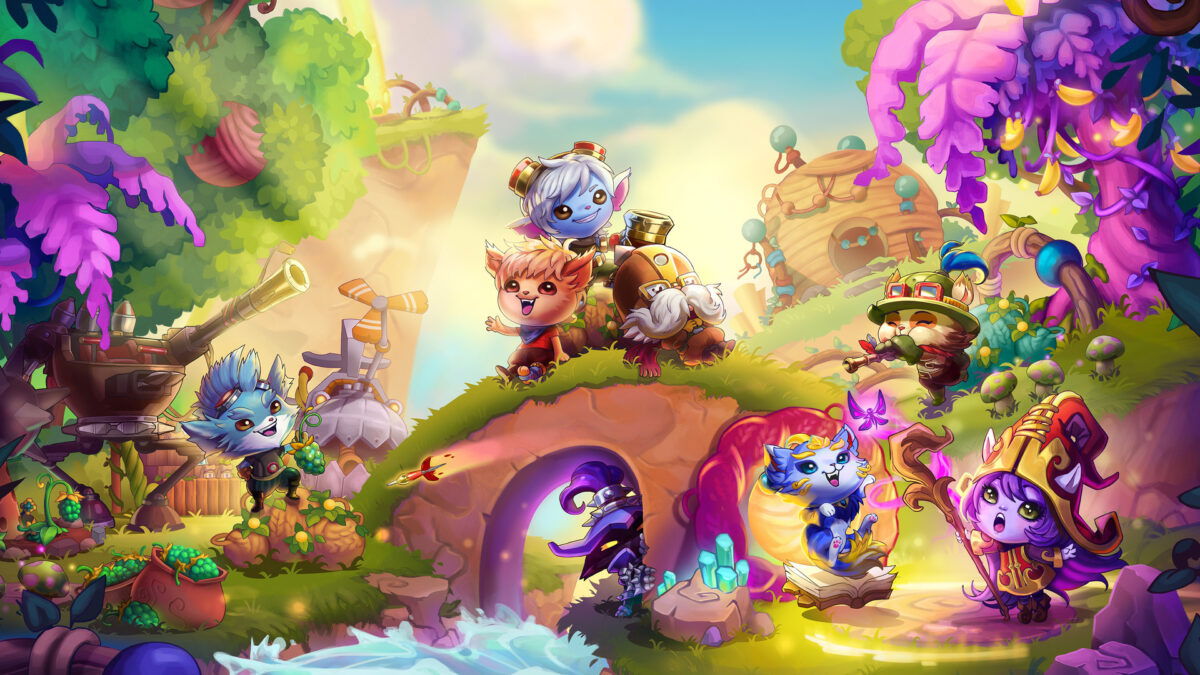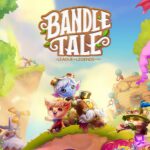Bandle Tale: A League of Legends Story is a convoluted end to Riot Forge’s endeavours as publisher. League of Legends is a multiplayer online battle arena (MOBA) game with undoubtedly one of the most fervent followings. In the esports scene, League is a giant, boasting massive prize pools and hundreds of competitors from all across the world.
In 2019, League’s parent company, Riot Games, revealed its plans to expand the property with more games and other media products, such as the Emmy-award-winning Netflix series Arcane. Riot Games, under the publishing arm Riot Forge, has since cooperated with various indie studios to release five “lore games” centred around the mythos and characters of Runeterra – the name of League’s perpetually growing universe. I reviewed the fifth of these titles in late 2023, namely Tequila Works’ Song of Nunu: A League of Legends Story, calling it “a song best left unheard” and scoring it a 5.5 / 10. To me, Song of Nunu is a low point in Riot Forge’s catalogue of generally well-received releases.
Now, in early 2024, Riot Forge and Lithuania-based studio Lazy Bear Games (Graveyard Keeper, Punch Club, etc.) are releasing Bandle Tale: A League of Legends Story, a crafting RPG meant for the casual/cozy player. If you’ve been keeping count, you’ll know that this is the sixthRiot Forge entry, however, this also may be their last ever project, given recent news that Riot Games plans to lay off 11% of its total workforce and close down the publishing label. As such, Bandle Tale: A League of Legends Story happens to be the swan song of League-adjacent titles, at least until Project L, a fighting game first teased in 2019, comes out – if that ever finally happens.
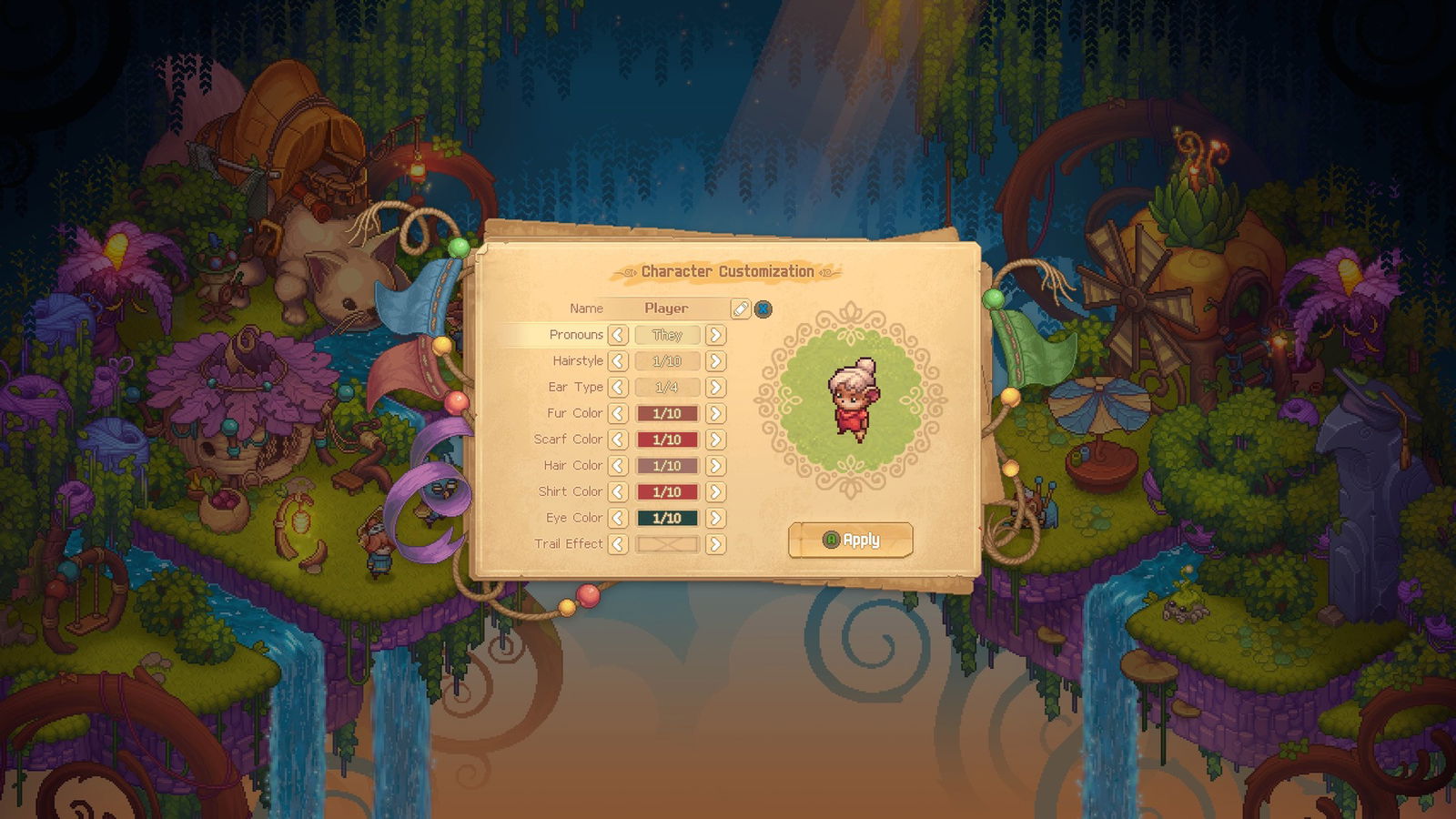
For what it’s worth, Bandle Tale is all about throwing parties for new-found friends, so that’s probably the best way for Riot Forge to go out with a bang. Indeed, the general premise of this RPG/simulator hybrid of sorts is to reconnect five different islands which, together, comprise Bandle City, the home of a species of tiny, ingenious critters called “yordles”. League lovers will surely recognize famous yordles and Bandle City denizens such as Teemo, Tristana, Veigar and more. This being said, in a series first (as far as I am aware), you play as a yordle which you are free to name and customize.
“Bandle Tale’s pixel art style is a highlight and is utilized well across the five islands’ unique biomes.”
As is perhaps to be expected from this kind of game, the story in Bandle Tale is fairly simplistic, the core message being that yordles, like people, are at their best when they are united together in the name of good fun and delicious food. Nevertheless, there are also some memorable moments, one being Tristana and Rumble’s date, which occasionally brought a smile to my face. In general, though, everyone but the most ardent League fans should not pick this one up expecting any important narrative payoffs.
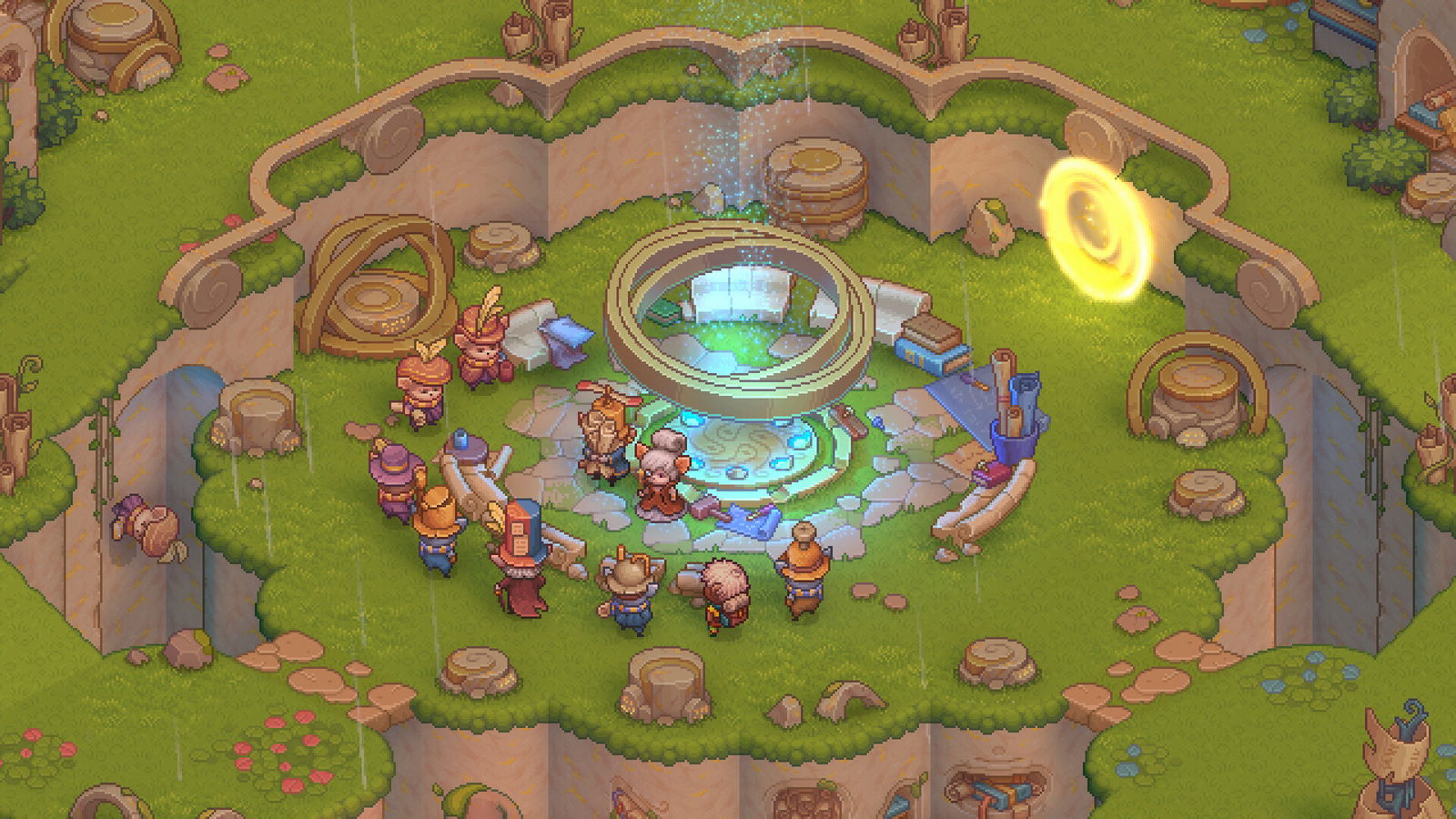
Instead, crafting RPG / farming simulator devouts, especially, should consider Bandle Tale if they’re looking for the next game to scratch that Animal Crossing or Stardew Valley itch, as everything you’re used to from those two aforementioned games – farming, crafting, cooking, fishing – is implemented here. Despite this, Bandle Tale falls shorter than most similar games in its overall implementation of this already tried-and-true formula. Most egregious to me was how much I had to grind for specific materials and how much the gameplay loop felt like busy work. Even if the systems flowed into each other well, and they really do, I often let out groans of frustration when I realized I had to procure the same material(s) again and again.
“Crafting RPG / farming simulator devouts should consider Bandle Tale if they’re looking for the next game to scratch that Animal Crossing or Stardew Valley itch.”
In addition to having to grind way too much in order to progress, I was also disappointed by how many workbenches I routinely had to rotate through in Bandle Tale. By the end of my 30-hour long playthrough, in which I obtained all the achievements, my house, which your yordle conveniently stores in a backpack (magic, I suppose), was cluttered by assembly tables, looms, grinders and more. It also did not help that I was confused at many points, and I found myself wishing that Bandle Tale had more life-quality features built into it.
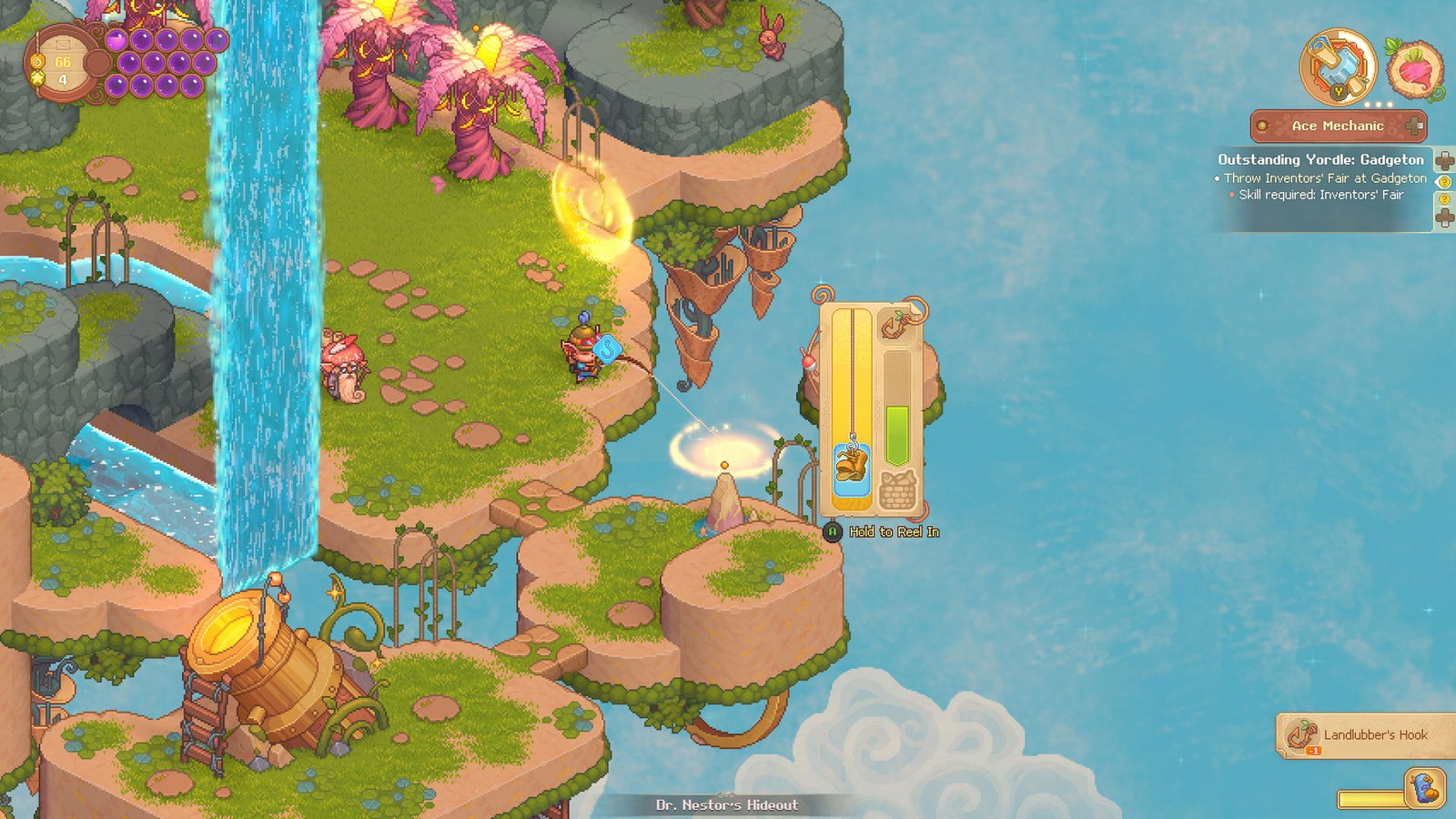
For example, up until the last few hours of the game, using a portal to navigate through the islands was something I had to use a resource for. And even if this resource was relatively easy to acquire, compounded by the other materials I was already juggling in a stuffed inventory, I often felt that the thing I wanted to do often came with a list of long prerequisites.
To put more salt in the wound, there is also no recipe guide to speak of, so I spent a significant amount of my time with the game just figuring out how to play it. Ultimately, insofar as the nitty gritty of Bandle Tale’s web of intricate systems go, I think they’re competent and overall good, but they ultimately provide way less joy than frustration to me.
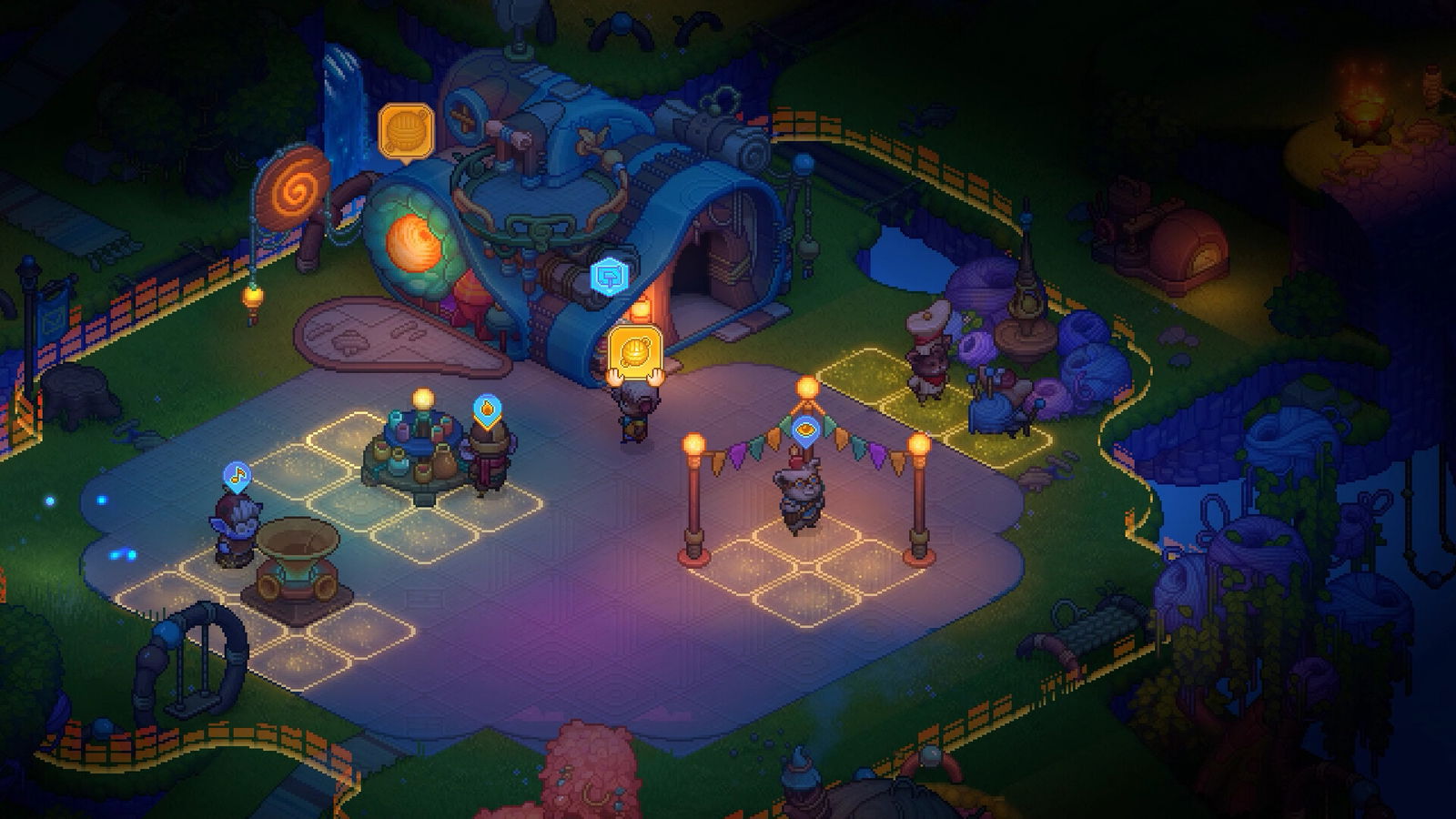
On a more positive note, Bandle Tale’s pixel art style is a highlight and is utilized well across the five islands’ unique biomes. I also appreciated the customization options, even if they are somewhat limited. The soundtrack is a winner just as much, fully encapsulating the cordless whimsical spirit through a nice selection of ambient tracks. In general, if anything makes you see Bandle Tale through, I suspect it will be the audiovisual department.
Bandle Tale: A League of Legends ends up being a competent, occasionally good, crafting RPG hybrid. It is most definitely not the next “it game,” however, for the select few who are willing to tough out the tedium, deal with convoluted systems, or have previously loved Lazy Bear Games’ previous title, Graveyard Keeper, Bandle Tale might just hit the right spot.
